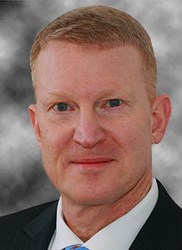Outsourced Pharma West Participants Question One-Stop-Shop Model
By Louis Garguilo, Chief Editor, Outsourced Pharma

The industry trend—and concept—of the “One-Stop-Shop” biopharmaceutical service provider took a rhetorical hit at the inaugural Outsourced Pharma West conference in San Francisco (November 10-11).
Outsourced Pharma West, presented by the Life Science Leader magazine and BayBio (Outsourced Pharma was a supporting organization), offered a unique opportunity for leaders from pharma and bio to gather with those from service providers and industry consultants to openly discuss topics and perspectives in our growing and global industry.
In at least three sessions (Qualifying CDMO Capabilities & Benchmarking Your CDMO’s Performance; Matching A Vendor To Your Stage of Development; Building An Internal Outsourcing Infrastructure), as well as in private conversations at the networking conference, discussion turned to the “soup-to-nuts” approach by providers in an effort to gain more strategic relationships with customers.
Executives from big pharma such as Merck, Pfizer and AstraZeneca mentioned they didn’t believe the concept could work and were not sure why it was so much in vogue.
The model was even questioned on the CDMO side. When it was suggested more providers were moving towards the model, David Enloe, President and CEO of Althea, said: “I must have been living under a rock for a while, because I still think the way to differentiate yourself is to offer a specific set of services that you do better than others or others don’t have.”
The consultants were aligned as well. For example, Brian James, VP Operations at Rondaxe, said he wasn’t impressed with presentations from CDMOs that list “a bunch of capabilities. If they can’t tell us the few things they have that others don’t, and that they excel at, we won’t select them as a partner.”
Well. This was a bit of a surprise.
Not that the adage of sticking with what you do well is new to anyone. It’s just that we’ve been hearing for quite a while about the need for adding capabilities and services to gain strategic leverage and deeper customer relationships. M&A has been viewed positively as these activities have been accelerating.
Outsourced Pharma has published a number of articles on this topic of offering more (or everything) to sponsors. Some companies appear to be doing so successfully. A recent article featured Todd Nelson of WuXi, perhaps the preeminent example of what we might call service-stacking. I’ve even been “guilty” of naming a recent article on Cobra Biologics as “A One-Stop-Shop For Biologics Production In Europe.”
Strategic May Not Mean Comprehensive
So why has there been so much talk about the need for comprehensive services? Frankly, all indications are that members of big pharma itself have driven the dialogue.
How often have CROs/CDMOs heard the past 12 months that pharma wants to pare the number of vendors they work with and deepen those remaining relationships? The answer is so often we’ve created a veritable rhetoric of strategic partnerships. It’s as if customers are pushing providers to go in this direction— consolidate and/or grow services organically—to reach that level of the chosen strategic partner, but along the way people are singing the tune of “Jack of All Trades, Master of None.”
Or maybe not. What we might really be talking about here is a matter of degree and definition.
First, let’s look at consolidation. Our outsourcing industry is and has been notoriously fragmented. Some have called the industry immature in its development. Therefore, perhaps while in the name of strategic partnerships, some of this consolidation may be a natural market maturation.
Regarding degree, at Outsourced Pharma West and notwithstanding the sentiments documented above, there was even more discussion of the need to have “full service” providers, but in a more limited sense, such as working with CROs without service (or competency) gaps to fully support the stage of a project. For example, can the CRO comprehensively assist an early small molecule program with full biology support and a strong medicinal chemistry effort? On the CDMO side, a strategic partnership might revolve around a unique technology specialization applicable directly to an owner’s biologic, and perhaps the ability to move that specific program through development and a customized manufacturing process.
By definition, then, strategic could imply long-term, multi-service partnerships—more of the one-stop-shop model—but also mean strong relationships at each level of service needed. As the retail industry started to learn long years ago, no customer interaction should be considered tactical. It appears both sides, service providers on the one and big biopharma and even virtual company customers on the other, are focusing on this ideal and forcing the issue.
What remains to be seen is whether more comprehensive service offerings lead to long-term relationships in practice, and to what level this extends.
Some providers are preparing for and looking forward to an actualization. Jim Mullen, CEO, DPx Holdings B. V., spoke to an extent about this earlier this year. And we should mention, as Todd Nelson of WuXi STA and Angelo Magnelli of Patheon have pointed out recently, it is the smaller companies without facilities, experience or the human resources to manage various external relationships, who in fact most benefit from a partner offering a full array of services and guidance.
As we start to close off 2014, the good news is that from the individual researcher to big pharma, anyone in our industry can “shop” as they prefer, either for an item at a time or for a full outfitting. Best of all, the entire industry continues to discuss, debate and move towards a mutual and more strategic customer-provider paradigm.
(Editor’s Note: A large “thank you” to everyone who sponsored, added insight to our panels, exhibited and/or attended the inaugural Outsourced Pharma West conference and exhibition to help make it such a success.)
